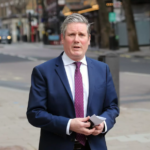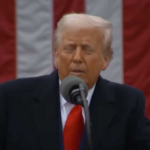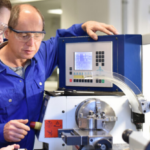Chancellor Rachel Reeves is set to propose a “reset” in the United Kingdom’s economic relationship with the European Union, urging for closer ties that would facilitate smoother trade and bolster economic growth on both sides. In a historic speech, Reeves will be the first British chancellor to address the Eurogroup since Brexit, emphasizing that while the UK is not seeking to rejoin the EU’s single market or customs union, forging a “mature, business-like relationship” is in the shared interest of both parties.
In her address to European finance ministers in Brussels, Reeves will acknowledge the challenges of recent years, asserting, “Division and chaos defined the last government’s approach to Europe. It will not define ours.” The chancellor will stress Labour’s commitment to respecting the UK’s decision to leave the EU structures but will highlight practical measures to ease trade barriers, such as reducing paperwork, alleviating export obstacles, and exploring a veterinary agreement to streamline food and agricultural trade.
Reeves’s call for greater alignment with the EU comes as UK exporters continue to face significant challenges following Brexit, particularly around the increased regulatory burdens and paperwork. This has been compounded by broader global trade risks, including President-elect Donald Trump’s threats to impose tariffs on imported goods. The British Chambers of Commerce (BCC) has echoed Reeves’s concerns, warning that UK firms “struggling under huge regulatory and paperwork burdens” need smoother export processes to thrive.
However, Reeves’s push for closer economic ties with the EU may face political opposition. The Conservative Party has criticized her focus on Europe, calling for a greater emphasis on securing a transatlantic trade deal with the incoming US administration. Meanwhile, the EU could seek its own concessions, such as better opportunities for young Europeans to live and work in the UK, which Labour leader Sir Keir Starmer has previously opposed.
Reeves’s stance aligns with recent comments from Bank of England Governor Andrew Bailey, who has also advocated for rebuilding relations with the EU. Analysts have warned that rising protectionism in the US could threaten European exports, making constructive UK-EU engagement increasingly important. Carsten Brzeski, global head of ING Research, noted that potential US tariffs could harm Europe’s growth prospects, highlighting the need for strengthened cooperation between the UK and the EU.
By promoting a collaborative approach, Reeves aims to reassure businesses and investors that Britain’s economic future will be shaped by cooperation, not isolation. In doing so, she hopes to position the UK as a resilient, forward-looking player in the global economy amid uncertain trading conditions.









